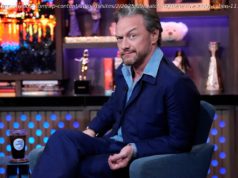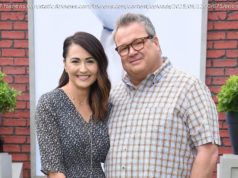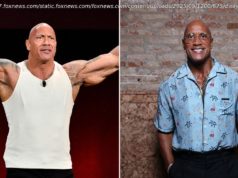The U. S. president, who refrains from criticizing Vladimir Putin, is known for attacking his opponents and treating those who help him especially well.
President Donald Trump met with Vladimir Putin on Friday in an entirely predictable fashion – eyes fixed on his bottom line.
He told the Russian president sitting down together was «an honor, » his trademark term of ingratiation. He added: «We look forward to a lot of very positive things happening.»
Foreign policy experts had urged the president to sternly confront Putin over the negative thing that happened last year, when Russia conducted a cyber-attack on Democratic targets to help elect him. But diplomats from both countries made clear afterward that Trump had not.
Secretary of State Rex Tillerson said his boss began the meeting by raising the «concerns of the American people» over the matter, and «pressed» Putin in a robust discussion. But the two leaders, whom the secretary said had «a very clear positive chemistry, » then turned their attention forward.
«There was not a lot of re-litigating the past, » Tillerson said. On what he called their «disagreement» about hacking, Russian Foreign Minister Sergey Lavrov went further to say Trump accepted Putin’s denial that Moscow had interfered at all.
If Trump did accept it, that would line up with his consistent refusal to criticize Putin and to publicly embrace the U. S. intelligence community’s unequivocal conclusion about Russia’s culpability. By reiterating his uncertainty in Europe even before their meeting, he again stood closer to a foreign adversary than top national security officials within the country he leads.
Trump’s history in business and politics suggests the simplest of explanations: Russia helped him. And that reality outweighs more abstract notions about U. S. institutions and security interests that veterans of past administrations fault him for not defending.
Trump has explained his transactional philosophy in both the positive and the negative. If someone hits him, he likes to say, he hits back «10 times harder.»
He reciprocates assistance just the same. As he remarked of Putin last year, «If he says great things about me, I’m going to say great things about him.»
He praised television executive Jeff Zucker, who gave him a national platform with «The Apprentice, » then blasted him as a failure over CNN’s coverage. He ripped 2016 primary opponents Ted Cruz, Ben Carson and Marco Rubio in excruciatingly personal terms, then praised them after they endorsed him.
He called Paul Ryan «weak and ineffective» in response to criticism, then likened him to «fine wine» as they embarked on a shared agenda. Desperate for a victory on major legislation, Trump is now pressing for enactment of a health-care bill that would impose hardship on the white working class voters who powered his campaign.
That history foreshadowed the disappointment of those who wanted Trump to challenge Putin with assertions of wrongdoing and potential consequences. «It is not enough to agree to disagree, » said Richard Haass, a foreign policy aide in both Bush administrations.
«He does not have grand theories or ideas, » explained Danielle Pletka, a foreign policy specialist at the conservative American Enterprise Institute. «Insofar as someone is useful to him they are fine. Insofar as they interfere, they are bad.»
Whether Trump’s stance stems from a deeper source than surface-level back-scratching is the subject of investigations by Congressional committees and special counsel Robert Mueller. They are examining both financial transactions and contacts involving Russians and Trump associates.
But the administration’s actions, like Trump’s warm words for Putin on Friday, give no reason to expect a shift in tone. The administration has declined to embrace Senate-passed legislation stiffening sanctions on Russia, and is discussing the possibility of returning Russian facilities seized by the Obama administration as punishment for interfering in the election.
«With Trump doing nothing, he’s enabling Putin, » said Juliette Kayyem, a former Obama administration security official who teaches at Harvard’s Kennedy School. «Trump wants Putin’s help in 2020. Just say it directly. It’s so obvious.»






